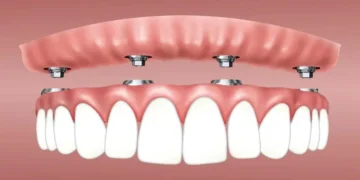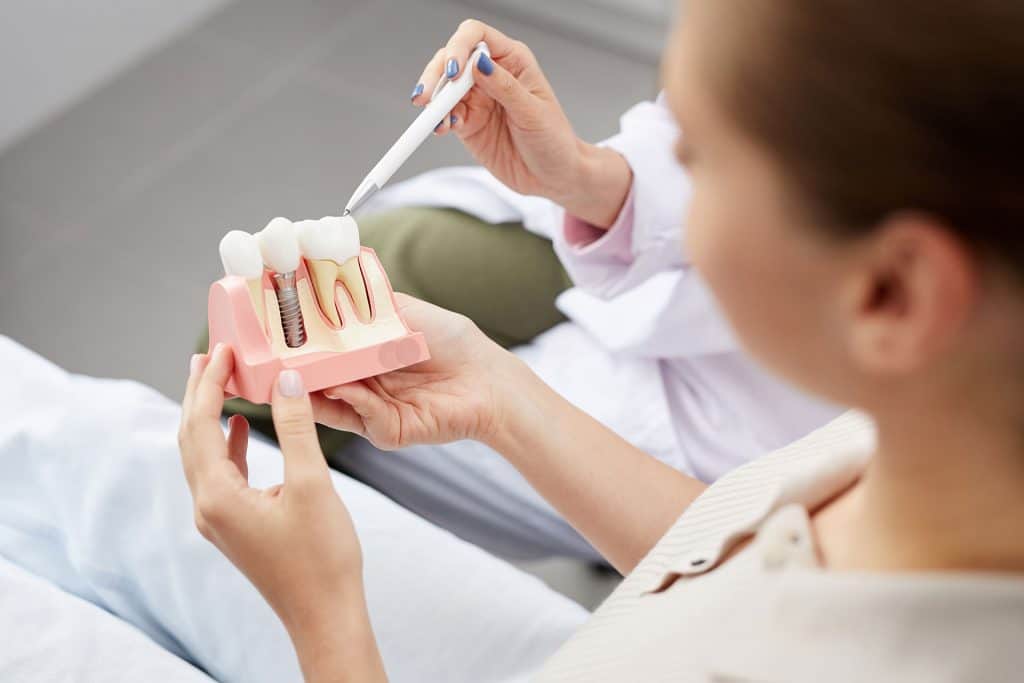Gum disease treatment options range from non-surgical to surgical, depending on the severity of the disease, gum and tooth health, and overall health. With periodontal disease, infected gum tissue may need to be surgically removed. Gum disease left untreated may require surgery. If you discover any irregularities in your teeth or gums, see a dentist every once.
Is there a treatment for gum disease?
Different treatments are used for different stages of gum (periodontal) disease, as well as how well you responded to previous treatments and your overall health.
Treatment options include non-surgical methods as well as surgical ones, depending on the results of the periodontal assessment. Bacterial growth can be controlled non-surgically. Surgically repairing the tissues that support and surround the teeth is possible.
Why Is Surgical Care Required?
It is possible to detect and treat gum disease in its earliest stages with regular dental examinations. Untreated gum disease can result in infections and damaged gums that necessitate surgery if left untreated for too long. Here’s what to know if your dentist has referred you to a gum specialist for gum surgery:
Gum disease might progress to the point where it necessitates surgery for certain patients. After a comprehensive evaluation, a general dentist will often prescribe surgery. Because the gums have begun to recede and pull away from the teeth, surgery is often the only option to restore health.
The gums can appear extended if they do this. Occasionally, the root and base of a tooth are exposed, increasing the risk of a serious infection. The gums may also become inflamed, resulting in the necessity for surgery to rehabilitate their health and look.
Gum surgery alternatives
If you have gum problems, you may be a contender for non-surgical gum treatments. Pinhole gum grafting employs a unique tool to free the tissue and reposition it to its right position on the teeth in the case of receding gums. Collagen strips are applied after the gums have been placed to help keep them in place and to help the gum tissue adapt to the teeth on a new level.
The Laser-Assisted New Attachment Procedure (LANAP) addresses the pockets between the gums and teeth that can gather germs that cause gum disease and is another non-surgical gum therapy. When you have LANAP, you utilize a laser to kill germs in the gum pockets and remove diseased tissue, which helps the gum collagen fibers reconnect with the tooth and restore its seal.
Few suggestions to prevent dental surgery
Everyone should adhere to the following guidelines, which will assist them to avoid needing periodontal surgery.
Visit your dentist for a checkup and cleaning
Dental cleanings on a regular basis are essential for good oral health. Plaque and tartar are methodically removed when dental cleanings are performed on the teeth. Healthy gums and teeth have a symbiotic relationship.
Use a quality mouthwash
Gum disease can be prevented by rinsing with high-quality mouthwash and swishing it about in the mouth. It will also get rid of any bacteria that could be left behind.
Get rid of bad habits
Smoking increases the risk of gum disease, which necessitates periodontal surgery in the long run.
Eat a balanced diet that is rich in vitamins and minerals.
Eating a balanced diet is beneficial to the gums on a long-term basis.
See a periodontist
A periodontal evaluation by an experienced dentist can provide a thorough picture of a person’s oral health, including the presence or absence of early signs of gum disease.
Typical symptoms
Gum surgery isn’t always necessary, but these warning symptoms may point to the possibility that you’re in the early stages of gum disease. The sooner you get this taken care of, the better your chances are of avoiding gum surgery.
- Red or swollen gum is an indication of gum disease
- Gum bleeding.
- Another common symptom of gum disease is gums that appear to be retreating from the tooth
- Persistent bad breath.
- Periodontal disease can lead to loose teeth and visible pus around the gums and teeth
A visit to a periodontist is strongly recommended in this scenario.
The final word
If you’re concerned about your gums, make an appointment with a Dentist Folsom or a dentist in Marietta right away. When it comes to your dental health, it’s always preferable to be on the safe side.


 Home
Home









